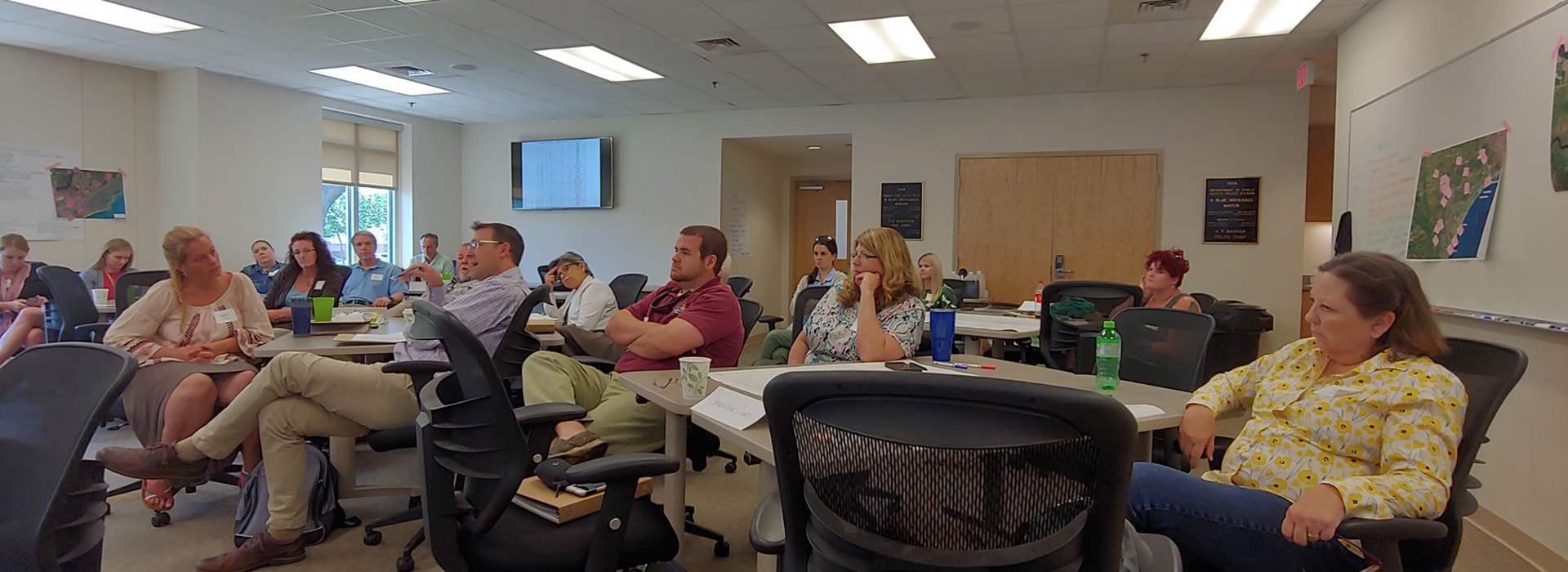When conditions start changing, we can adapt in many ways. Before a day outside, our personal preparations may include checking the forecasted conditions, layering clothing options, and bringing back-ups of essential gear. For entire coastal communities, the preparations may be more complex, but planning to adapt is increasingly important to sustain communities into the future.
In late May, the Reserve’s Coastal Training Program (CTP) hosted a NOAA Digital Coast training, “Adaptation Planning for Coastal Communities.” This is a course designed for planners, public works staff, floodplain managers, hazard mitigation planners, community groups, and coastal resource managers. Several consecutive years of extreme rainfall and storms have highlighted the need for adaptation, now and in the future, but coastal communities may be unsure where to begin.
This course provided practical skills, knowledge, and resources to integrate adaptation into planning processes. There were many steps to cover, from using climate science to inform decisions to identifying community assets to prioritizing solutions. Guest speakers from South Carolina Sea Grant Consortium, the City of Myrtle Beach, and the City of Conway shared their experience and expertise with understanding impacts, assessing vulnerabilities, and implementing solutions. Roughly 20 participants from a wide range of sectors in coastal South Carolina took part in discussions and exercises to practice putting these concepts into action.



